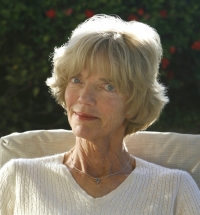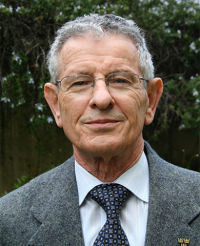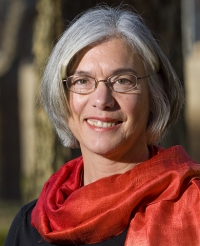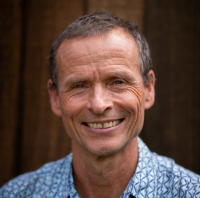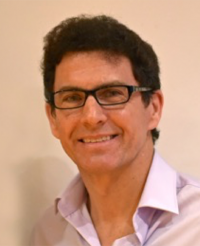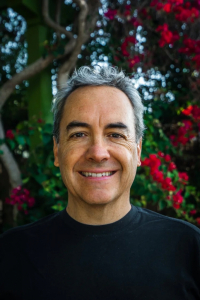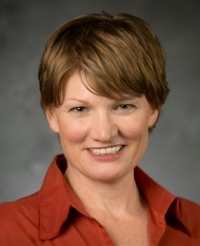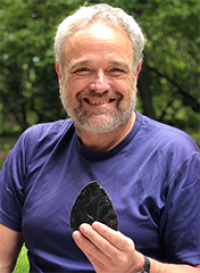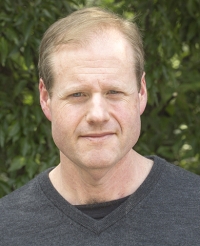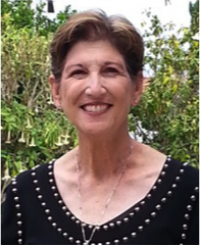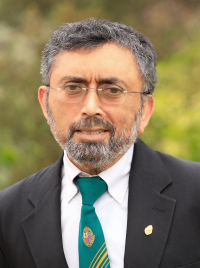Impact of Tool Use and Technology on the Evolution of the Human Mind
Biographical Sketches: Co-Chairs
University of California, Berkeley
My primary interests involve human evolution in all its dimensions. My research emphasizes fieldwork designed to acquire new data on early hominid skeletal biology, environmental context, and behavior. I have worked on hominids spanning the Pliocene and Pleistocene, from phylogenetic and functional perspectives. In parallel with this research, but in a more behavioral realm, I have investigated bone modification in the Pleistocene of the Old World and in the Holocene Southwest United States. Research underway includes fieldwork in Ethiopia and Turkey, and laboratory studies in both countries and in Berkeley.
The Laboratory for Human Evolutionary Studies, established by F.C. Howell, is an international center for research and training. The NSF-HOMINID program project "Researching Hominid Origins Initiative" was based in this laboratory. Former graduate students have done fieldwork and/or laboratory studies in China, France, Tanzania, Malawi, Kenya, Jordan, Turkey, and Ethiopia. Current undergraduate and graduate students as well as postdocs are studying vertebrate (including hominid) paleontology and human osteology.
University of California, San Diego
Patricia Smith Churchland is a neurophilosopher, now retired from the University of California San Diego, and an Adjunct Professor at the Salk Institute. She focuses on how discoveries in neuroscience impact traditional ideas about ourselves and how philosophers can usefully collaborate with scientists. She wrote the pioneering book, Neurophilosophy (MIT Press, 1986), and is co-author with T. J. Sejnowski of The Computational Brain (MIT Press, 1992). Her current work focuses on morality and the social brain: Braintrust: What Neuroscience tells us about Morality (Princeton University Press, 2011) and Conscience: The Origins of Moral Intuition (W. W. Norton & Company, 2019). She won a MacArthur Prize in 1991, the Rossi Prize for neuroscience in 2008, and the Prose Prize for science for Braintrust.
Extended interviews can be found on YouTube, The Science Network, and on Serious Science.
Biographical Sketches: Speakers
Stanford University
Marcus Feldman, Ph.D., is the Wohlford Professor of Biology at Stanford University and External Professor at the Santa Fe Institute. He directs the Morrison Institute for Population and Resource Studies and is co-director of Stanford’s Center for Computational, Evolutionary and Human Genomics. Feldman’s specific areas of research include the evolution of complex genetic systems that can undergo both natural selection and recombination, the evolution of modern humans using models for the dynamics of molecular polymorphisms, especially DNA variants, cultural evolution, and the evolution of learning as one interface between modern methods in artificial intelligence and models of biological processes, including communication. He is the author of more than 600 scientific papers and ten books on evolution, ecology, mathematical biology, and demography. He is a member of the U.S. National Academy of Sciences, the American Academy of Arts and Sciences, and the American Philosophical Society. He was the 2011 Dan David laureate in Evolution and was awarded the 2016 Kimura Prize in Evolution by the Japanese Suzuki Foundation.
University of Georgia
Dorothy Fragaszy is a comparative psychologist and primatologist and Emerita Professor of Psychology at the University of Georgia. She earned her bachelor's degree at Duke University, where she fell in love with primatology when she observed mother and infant lemurs as an undergraduate research assistant. Fragaszy completed her PhD in 1978 at the University of California, Davis. She studies primates' behavior from ethological, ecological, psychological, and biomechanical perspectives. She focuses on behavioral development, learning, problem-solving, perceptual and motor skills, manual dexterity, social influences on learning, and technical traditions. For most of Fragaszy's career, she studied these topics primarily with captive capuchin monkeys and occasionally with captive chimpanzees and humans. Since 2005, she and her collaborators in the EthoCebus project (http://www.ip.usp.br/ethocebus/) have studied wild bearded capuchin monkeys in the Cerrado of Brazil. These monkeys use stone hammers to crack palm nuts and other hard, encased food items. They use stones that can weigh more than they weigh themselves, transporting them to anvils and standing bipedally to use them as hammers. Fragaszy works with collaborators from anthropology, archaeology, biology, geography and kinesiology to understand these monkeys and their unusual technical skills from as broad a perspective as possible. She has served in several elected offices of the International Primatological Society including President and Secretary General and as President of the American Society of Primatologists. She is a Fellow of the American Association for the Advancement of Science and of the Association of Psychological Science and currently serves as Editor in Chief of the Journal of Comparative Psychology, published by the American Psychological Association.
UC San Diego
Pascal Gagneux is CARTA's Executive Co-Director, a Professor of Pathology and Anthropology, and the Department Chair of Anthropology at UC San Diego. He is interested in the evolutionary mechanisms responsible for generating and maintaining primate molecular diversity. The Gagneux laboratory studies cell-surface molecules in closely related primates species. His focus is on glycans, the oligosaccharides attached to glycolipids and glycoproteins of the surfaces of every cell and also secreted into the extra-cellular matrix. Gagneux's laboratory is exploring the roles of molecular diversity in protecting populations from pathogens as well as potential consequences for reproductive compatibility. Dr. Gagneux’s interest is in how glycan evolution is shaped by constraints from endogenous biochemistry and exogenous, pathogen-mediated natural selection, but could also have consequences for sexual selection. Dr. Gagneux has studied the behavioral ecology of wild chimpanzees in the Taï Forest, Ivory Coast, population genetics of West African chimpanzees, and differences in sialic acid biology between humans and great apes with special consideration of their differing pathogen regimes. In 2011, while Associate Director of CARTA, Dr. Gagneux helped to establish a graduate specialization in Anthropogeny at UC San Diego. This wholly unique graduate specialization is offered through eight participating graduate programs in the social and natural sciences at UC San Diego.
Harvard University
Joe Henrich is currently a Harvard Professor and Chair of the Department of Human Evolutionary Biology and serves on the CARTA External Advisory Board. Before moving to Harvard, he was a professor of both Economics and Psychology at the University of British Columbia, where he held the Canada Research Chair in Culture, Cognition and Coevolution. His research deploys evolutionary theory to understand how human psychology gives rise to cultural evolution and how this has shaped our species’ genetic evolution. Using insights generated from this approach, Professor Henrich has explored a variety of topics, including economic decision-making, social norms, fairness, religion, marriage, prestige and cooperation. He’s conducted fieldwork in Peru, Chile and in the South Pacific, as well as having spearheaded several large comparative projects. In 2016, he published The Secret of Our Success: How culture is driving human evolution, domesticating our species, and making us smart. In 2018, the Social and Personality Psychology Society awarded Henrich and his team the Wegner Prize for Theoretical Innovation. Henrich is also a senior fellow in the Canadian Institute for Advanced Research (CIFAR).
University of California, Davis
Leah Krubitzer is currently a professor in the Department of Psychology and Center for Neuroscience at the University of California, Davis. She received a BS at Penn State University in Communication Disorders and a PhD in Psychology at Vanderbilt University, Nashville Tennessee. Her graduate work, under the mentorship of Dr. Jon Kaas focused on the evolution of visual cortex in primates. Her interest in the evolution of the neocortex was extended in her postdoctoral work at the University of Queensland, Australia to include a variety of mammals such as monotremes and marsupials. While in Australia she performed comparative analysis on the neocortex of a variety of different species and to date has worked on the brains of over 45 different mammals. Her current research focuses on the impact of early experience on the cortical phenotype, and she specifically examines the effects of the sensory environment on the development of connections, functional organization and behavior and seeks to understand how cultural impacts brain development. She also examines the evolution of sensory motor networks involved in manual dexterity, reaching and grasping in mammals. She received a MacArthur award for her work on evolution.
University of California, San Diego
Rafael Núñez, professor of cognitive sciences at UC San Diego for over 20 years is now at ETH Zürich in Switzerland. Born and raised in Chile, he completed his doctoral career in Switzerland, and conducted his post-doctoral work at Stanford and UC Berkeley. He investigates the development and evolution of everyday and technical cognition (such as mathematics)—especially conceptual systems, symbolization, and abstraction— and their biologically enculturated underpinnings. His multidisciplinary approach uses methods such as psycholinguistic experiments, co-speech gesture, brain imaging, and field research with isolated indigenous groups in the Andes, Papua New Guinea, and the Amazon basin. His 2001 best-selling book, Where Mathematics Comes From: How the Embodied Mind Brings Mathematics into Being (co-authored with UC Berkeley linguist George Lakoff), presents a new theoretical framework for understanding the human bio-cultural nature of mathematics and its foundations. Rafael Núñez is on the Scientific Advisory Board of the Australian Centre of Excellence for the Dynamics of Language, a Senior Advisor of the Swiss National Centre of Competence in Research "Evolving Language", and a fellow of the Wissenschaftskolleg zu Berlin. He is one the four PIs of the recently awarded European Research Council Synergy Grant QUANTA, designed to investigate the bio-cultural evolution of quantification and numeral systems around the world. He has been recently elected life-time fellow of the Cognitive Science Society for his “impact on the Cognitive Science community, and [his] sustained record of excellence in research contributions." He is the only South American to have ever received this distinction.
UC Irvine
Candice Odgers is a Professor of Psychological Science at the University of California Irvine and a Research Professor in the Sanford School of Public Policy at Duke University. Her research focuses on how early experiences and social inequalities influence children’s development, with an emphasis on how new technologies, including mobile phones and web-based tools, can be leveraged to understand and improve the lives of young people.
Odgers was a William T. Grant Scholar and the recipient of early career awards from the American Psychological Association, the Society for Research in Child Development, the Royal Society of Canada, and the Association for Psychological Science. In 2015 she was awarded the Distinguished Contributions to Psychology in the Public Interest Early Career Award and, in 2016, the Jacobs Foundation Advanced Research Fellowship. Odgers is currently a Fellow of the Canadian Institute for Advanced Research, Child, Brain and Development Program.
Her research appears in journals such as the American Journal of Psychiatry, Annual Review of Clinical Psychology, Developmental Psychology, Nature, Psychological Bulletin andPsychological Scienceand has been covered in the popular media, including by the: Economist, New Scientist, London Times, Scientific American, and the Washington Post.
Stony Brook University
John J. Shea is Professor of Anthropology at Stony Brook University in New York. Born in Hamilton, Massachusetts (USA) he was educated at local schools, Boston University (BA 1982), and Harvard University (Ph.D. 1991). An archaeologist, Shea is renowned for his expertise in stone tool analysis and for his contributions to Southwest Asian and Eastern African prehistory. He has excavated in Israel, Jordan, Egypt, Eritrea, Ethiopia, Kenya, and Tanzania. His research explores ways to link the archaeological stone tool evidence to major issues in human evolution. His published works include Out of Africa 1: The First Hominin Colonization of Eurasia (2010), Stone Tools in the Paleolithic and Neolithic Near East: A Guide (2013), Stone Tools in Human Evolution: Behavioral Differences among Technological Primates (2016), and forthcoming in 2019, Prehistoric Stone Tools of Eastern Africa: A Guide. Shea’s stoneworking demonstrations appear in numerous television documentaries and in the United States’ National Museum of Natural History in Washington, D.C. He resides in Stony Brook, New York and Santa Fe, New Mexico.
Emory University
Dietrich Stout is an Associate Professor of Anthropology at Emory University, where his Paleolithic Technology Laboratory investigates the role of technology in human evolution. Dr. Stout is also Associate Director of Emory’s cross-disciplinary Center for Mind, Brain, and Culture, which promotes diverse and integrative research into human nature and experience. He received his Ph.D. in Paleoanthropology in 2003 from Indiana University, Bloomington, where he studied with Professors Kathy Schick and Nicholas Toth. He then spent one year as a Visiting Assistant Professor in Anthropology at George Washington University and four years as a Lecturer (equivalent U.S. Asst. Prof.) in Paleolithic Archaeology at the University College London Institute of Archaeology before relocating to Emory in 2009. His research focus on Paleolithic stone tool-making and brain evolution integrates field research at Plio-Pleistocene archaeological sites in Ethiopia with laboratory and museum research including artifact analysis and experimental replication, functional and structural neuroimaging, behavioral analysis, and psychometric testing. His work is published in discipline-specific journals ranging from Current Anthropology and the Journal of Archaeological Science to Neuroimage and the Journal of Neuroscience, as well as multidisciplinary venues such as the Proceedings of the National Academy of Sciences, and Science.
Salk Institute for Biological Studies
Paula Tallal received her Ph.D. from Cambridge University and held academic appointments at Johns Hopkins and UCSD School of Medicine before being recruited to Rutgers University where she co-founded the Center for Molecular and Behavioral Neuroscience. While at Rutgers University she held the University’s highest academic rank, Board of Governors Professor of Neuroscience. Tallal is currently on the faculty at The Salk Institute for Biological studies. For over 40 years, Dr. Tallal has led NIH and NSF funded multidisciplinary research teams and published over 250 papers on the neurobiological basis of speech, language and reading development and disorders. She was selected by the Library of Congress to be the Commentator for the Field of Psychology at its Bicentennial Celebration. In 1996, Tallal co-founded the Scientific Learning Corporation (SCIL), a neuroscience company dedicated to developing and delivering ‘smart technologies’ broadly aimed at improving cognitive, linguistic and academic outcomes. She is the co-inventor on dozens of patents and won the Thomas Alvin Edison Patent Award for her innovative research leading to the development of the Fast ForWord® series of neuroeducational training programs.
UC San Diego School of Medicine
Ajit Varki is a Distinguished Professor of Medicine and Cellular & Molecular Medicine, Emeritus Co-Director of CARTA, Emeritus Co-Director of the Glycobiology Research and Training Center at UC San Diego, and Adjunct Professor at the Salk Institute. He received basic training in physiology, medicine, biology, and biochemistry at the Christian Medical College (CMC), Vellore, The University of Nebraska, and Washington University in St. Louis. He also has formal training and board certification in internal medicine, hematology, and oncology. Varki is the executive editor of Essentials of Glycobiology (Cold Spring Harbor Press, 4th Edition, 2022) and is recipient of a MERIT award from the NIH, and an American Cancer Society Faculty Research Award. Honorific elections include the American Academy of Arts and Sciences, the National Academy of Medicine, the American Society for Clinical Investigation, and the Association of American Physicians. He is also recipient of the three highest honors in his field, the Karl Meyer Award of the Society for Glycobiology, the International Glycoconjugate Organization Award and the Rosalind Kornfeld Award for Lifetime Achievement in Glycobiology. He is recognized for creating the first major open access research journal (J. Clin. Invest., 1996) as well as the first major open access textbook (Essentials of Glycobiology, 2009). He was honored with the Old Cottonian of Eminence Award at the 150th Anniversary of Bishop Cotton Boys School, Bangalore, India, (2015) as well as a Distinguished Faculty Medal and Oration at his medical school alma mater, CMC, Vellore. Significant past appointments include: Co-Head, UC San Diego Division of Hematology-Oncology; President of the Society for Glycobiology; Editor-in-Chief of the Journal of Clinical Investigation; Interim Director of the UC San Diego Cancer Center, President of the American Society for Clinical Investigation, and UC San Diego Associate Dean for Physician-Scientist Training. Varki's research interests are focused on a family of cell surface sugars called sialic acids, and their roles in biology, evolution and disease. Currently, active projects are relevant to the roles of sialic acids in microbial infectivity, the regulation of the immune response, the progression and spread of tumors, aging, and unique aspects of human evolution. His group is particularly intrigued to find multiple interrelated differences in sialic acid biology between humans and our closest evolutionary cousins, the "great apes." These differences are a signature of the events that occurred during the last few million years of human evolution, and appear to be relevant to understanding several aspects of the current human condition, both in health and disease. Varki’s book, Denial (Twelve, Hachette Books, 2013), explores a novel "Mind Over Reality Transition” (MORT) theory that denying reality and personal mortality was a key step in allowing the emergence of a full theory of mind, and in the origin of our species.

